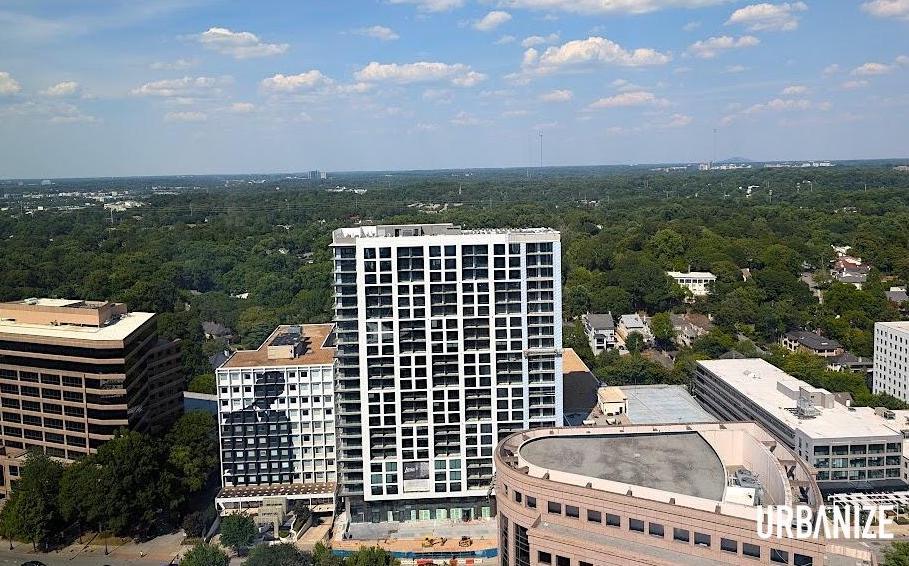With affordable housing (or lack thereof) perpetually in headlines around Atlanta, the mayor’s office is taking a step it calls a proactive means of encouraging development of more attainable living options in some of the city’s fastest-growing, job-rich, and most desirable areas to live.
Mayor Andre Dickens on Monday announced a new policy meant to spur the creation of affordable housing in what’s referred to as “high-growth” sections of Atlanta by way of an updated density bonus program.
Those areas include Midtown, quickly growing neighborhoods around the Beltline loop, and other places with commercial zoning.
The new legislation—created in partnership with Midtown Alliance, and sponsored by District 1 Atlanta City Councilmember Jason Winston—will aim to incentivize developers to bake less-expensive housing into new projects by allowing for increased density in exchange for units set aside as affordable options, per the mayor’s office.
The incentives will apply to Mixed Residential Commercial, or MRC-3, zoning districts, and sections of Midtown where the recently revised Special Public Interest zoning ordinance, or SPI-16, has taken effect.
 Getting a foot in the door at the new Loria Ansley building (pictured at center) costs $1,546 monthly right now. That rents a studio with 470 square feet. Josh Green/Urbanize Atlanta
Getting a foot in the door at the new Loria Ansley building (pictured at center) costs $1,546 monthly right now. That rents a studio with 470 square feet. Josh Green/Urbanize Atlanta
As proposed, the changes to the city’s current density bonus programs would increase the amount of developable square footage that can be built in certain areas in exchange for affordable units.
The existing density bonuses, the mayor’s office concedes, have not lived up to expectations. (Anecdotally, the northern blocks of Midtown alone have seen three new high-rise apartment towers debut within the past year with nearly 1,000 residences—all of them renting for market-rate. Those buildings stand 28, 31, and 33 stories.)
The legislation’s creators say it will result in more affordable living options being developed for people with all income levels in areas with transit access, job growth, and generally high demand.
For developers, the city’s new policy would offer “flexibility by providing multiple ways…to contribute to affordability while also reducing costs and increasing rewards for those who participate,” reads a city announcement.
Dickens called the proposed changes another tool in this administration’s goal of building or preserving 20,000 affordable housing units in the city by 2030.
“By leveraging density bonuses,” said the mayor in a prepared statement, “we are creating pathways for more affordable housing in some of the most vibrant parts of our city.”
Winston, the legislation’s sponsor, added that more density bonuses would meet a need for “proactive measures to ensure affordability in high-demand areas... especially as we approach the completion of the Atlanta Beltline.”
...
Follow us on social media:
Twitter / Facebook/and now: Instagram
• Forbes declares Atlanta the 'most educated city in America' (Urbanize ATL)






